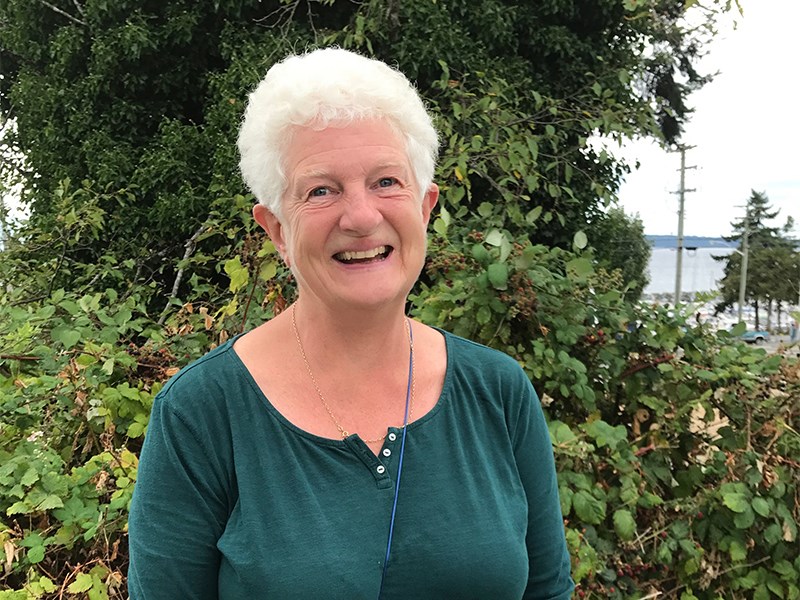Restorative-justice programs in BC remain on the fringes of Canada’s criminal justice system, despite their well-demonstrated value, according to a Canadian Bar Association report.
Texada Island-Powell River Restorative Justice is looking to play a role in changing that. Organizers are working on relocating to Powell River and increasing the number of cases it handles each year.
The decision is timely and comes just after the BC government committed to expanding its restorative-justice program throughout the province.
"We've kept it going, but there’s little demand on Texada,” said Texada Island-Powell River Restorative Justice coordinator Jane Waterman. “We have known for a long time that the program needs a much larger profile in Powell River.”
The Texada group began in 2004 as an initiative of the island’s community-policing committee.
Similar to programs in other communities, restorative justice in the region allows an offender and victim to meet and determine what consequence is appropriate.
Tla’amin Nation justice worker Verna Francis has run the first nation’s restorative-justice program in partnership with Texada's for the past eight years. She said the program is not widely used, but is quite effective when it is.
“It’s been very positive,” said Francis. “We’ve used it mostly with youth. It would be nice if adults could agree to go through restorative justice; it really works.”
Powell River RCMP sergeant Kevin Day said the program is often used for first-time offenders of non-violent crimes, such as vandalism or theft.
"It's a very valuable program in that it gives an alternative for certain individuals to repair the harm they have done,” said Day.
The program is an opportunity for offenders to avoid entering the court system and perform community service; its use is limited though, said Day.
Only if the offender admits wrongdoing and the victim is willing to participate can police refer the matter to the program, he said. If not, the matter will have to go through the courts, he added.
The Texada-based group has heard cases from Powell River since 2010, but Waterman said the process is not well-known and can only take referrals from local police, not local Crown prosecutors.
Day said the local detachment is working on improving its members’ understanding of the process and welcomes its move to Powell River.
Canadian Bar Association’s BC chapter president Michael Welsh said despite the provincial government recognizing the value and potential impact restorative justice could have, it has not yet been implemented in a province-wide fashion.
Texada’s is one of 45 restorative-justice programs in BC. Led and staffed by volunteers, the programs are given $2,500 annual grants from the province; the rest of the funding is up to each group to raise.
Welsh said each program has been left to determine what approach to restorative justice it will take. Restorative justice is best described as an outcome, not a definite set of practices, he added.
Welsh said no province-wide standards are in place, which contributes to the federal government's reluctance to allow a greater role for restorative justice in the current court system.
According to the BC Prosecution Service, Crown counsel can recommend restorative justice-based alternative measures under section 717 of the Canadian Criminal Code.
But those measures are within the court system, often involving the use of probation officers and do not include the community or victim to determine what acts of reconciliation will happen, said Welsh.
BC solicitor general and minister of public safety Mike Farnworth said in July that the NDP government has made expanding restorative justice in the province a priority. The government has yet to provide details on its next moves.
Welsh said he is encouraged by the government’s decision and wants to see it provide an increase in funding for the community groups and enter into a broad consultation with the public.
“It's something that needs to be done with proper consultation with the people who are on the ground doing the work,” said Welsh.
Waterman said she thinks restorative justice can play a much larger role in the criminal-justice system than it currently does.
“I am very pleased the government is recognizing the value of restorative justice,” she said. “It is strongly felt in the restorative-justice community that programs should be designed to suit community needs and that one size does not fit all.”
Despite that, programs should operate with common values and ensure standards of accountability, said Waterman.
More funding would allow for greater consistency, she added.
Waterman said if the federal government allowed restorative justice to play a greater role, it could be used less as a diversion of cases from the system and integrated more to allow an opportunity for the victim to gain better closure and offender to gain an understanding of the impact of their actions.
"It is possible to be used in many different ways," she said.
Waterman added that restorative justice could still be used, even if the offender is sentenced to jail time.
Welsh said in cases where victims write impact statements, often only the judge reads them, not the accused.
Waterman said Texada volunteers will be working with retired judge Barry Stuart, who is well-known in the restorative justice movement, to work on revamping the program and offering more training for facilitators and mentors in the fall.
Stuart incorporated the aboriginal concept of community-justice-sentencing circles into mainstream practice in Yukon in the early 1990s.
Waterman said the group needs to be based in Powell River in order to grow and deliver a program “designed by and suited to the community” to supplement the current criminal justice system.



